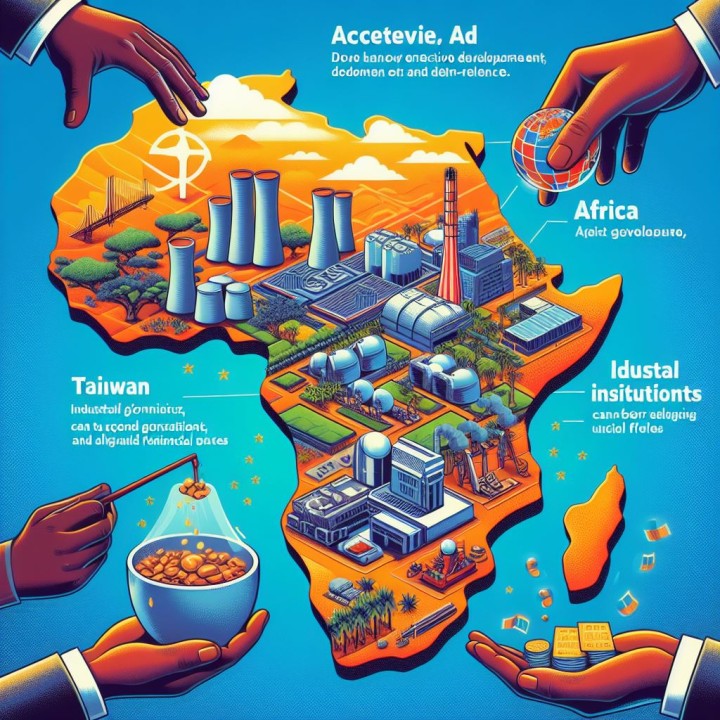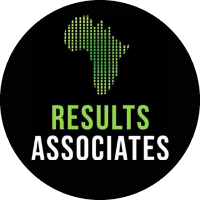
Posted on February 15, 2024
By Aboubakr Kaira Barry, Founder and Managing Director at Results Associates, Bethesda, MD, USA.
“Give a man a fish and you feed him for a day; teach a man to fish and you feed him for a lifetime,” is a saying attributed to Confucius, the Chinese philosopher (551 BCE-479 BCE). Effective aid to Africa imparts the knowledge to generate exports in order to pay for imports and create employment opportunities for its youth.
On September 23, 1997, James D. Wolfensohn, then-president of the World Bank, said, “Where aid can’t be effective… we need to help countries help themselves: by building their own capacity to design and implement their own development.”
Sub-Saharan Africa’s (SSA) governance ranking according to the World Governance Indicators (WGI), shows deterioration, as seen in Figure 1.

In the corresponding period, SSA received US$2.07 trillion in aid, as reported by the Organization for Economic Cooperation and Development (OECD), as shown in Figure 2.

How can we incentivize a better outcome in the future?
Taiwan’s remarkable transformation provides a good example. In 1949, it was a resource-poor country with limited human capital. Its leader, Chiang Kai-shek, emphasized development and economic growth. He appointed a competent economic management team to lead the task. “Chiang’s smartest move was to entrust economic policymaking to the ‘super technocrats’ – highly capable officials, many of whom were scientists and engineers, who operated with minimal political interference,” wrote Daniel Yergin and Joseph Stanislaw in the book Commanding Heights.
Building on what investors wanted, Taiwan conceived and executed an industrial policy anchored by generating export earnings to pay for imports and grow its economy. Summarizing Taiwan’s strategy, Mr. K.T. Lee, the chief planner from 1963 to 1980 and considered the architect of Taiwan’s economic miracle, said: “What we policymakers did in Taiwan was to help various parts of the economy first to stand, then to walk, and then we let go.” Consequently, Taiwan’s GDP per capita grew from US$100 in 1949 to US$34,000 in 2024, and its foreign exchange reserves reached US$ 569.54 billion, as of January 2024.
All the industrialized Asian countries (Korea, Taiwan, Hong Kong, Singapore, China) followed the Japanese playbook of industrial policy led by a competent bureaucracy. This illustrates that solutions for making Africa prosperous already exist and can be adapted, where there is the political will to copy, adjust, and implement.
Yet, there are three key hindrances obstructing Africa’s path to self-reliance:
- Leaders do not always prioritize development and economic growth. Aid, like the tango, requires a strong commitment from both the givers and the receivers, along with a shared direction.
- The influence of the World Bank and International Monetary Fund, which is significant, tends to discourage industrial policies in favor of the Washington consensus of trade liberalization, open capital accounts, and a liberalized financial sector. Friedrich List (1789-1846), a German economist, likened unrestricted free trade to rich countries taking away the ladder of economic development from poor countries. The Bretton Woods institutions must reconsider their stance on this. Even the United States has moved on. “The United States never abandoned industrial policy… What’s different with Biden is that there’s been an explicit articulation of industrial policy…. So, what used to fly under the radar…has become something we’re shouting from the rooftops,” says Dani Rodrik, a Harvard economist, according to Unhedged: Dani Rodrik on doing industrial policy right, Financial Times, February 9, 2024.
- A complex network of bankers, lawyers, and accountants collaborate with officials to drain funds from Africa using shell companies and offshore bank accounts. Stephan Dercon, author of Gambling on Development, estimates that $89 billion in capital leaves Africa annually, surpassing the net foreign direct investment it receives, a point echoed by Ghana’s president, Nana Akufo-Addo, at the United Nations in September 2023.
Fortunately, there is a fresh opportunity for change.
President Ajay Banga, in his speech at the Foreign Relations Council on September 26, 2023, said: “While people want our money… our job should be to make ourselves irrelevant for money for the countries. But we should not become irrelevant for knowledge because knowledge is what will drive the ultimate growth and equalization in the world.” To realize this vision, I propose four strategic initiatives:
- Prioritize lending to countries with a credible commitment to development and economic growth. New loans should be disbursed if two conditions are met: (a) the Bank certifies the existence of procedures ensuring the use of loans for intended purposes, and (b) it guarantees 10% of the loan against default to have a skin in the game and share losses from bad lending.
- Establish a ten-year technical assistance and capacity building program to institutionalize the capability for policy making, long-term planning, and execution, focusing on: (a) Development of an economic team staffed by the best available talent who have the character and commitment to lead the vital task of economic management; (b) Formulation and implementation of country-specific industrial policies that leverage each country’s comparative advantages, and yield the attraction of foreign direct investments, development of human capital, and the generation of foreign exchange through exports.
- Provide public goods in trade, collaborating with the World Trade Organization, to improve Africa’s access to export markets.
- Evaluate the effectiveness of technical assistance and capacity building using three verifiable benchmarks: (a) Inflow of direct investment; (b) Volume of long-term debt and spread relative to investment-grade bonds; (c) Earnings from the export of goods and services.
These positively correlate with economic management. As the late management guru Peter Drucker said: “What gets measured gets improved.”
Adopting these metrics will steer the Bank towards initiatives that build capacity for self-reliance, create a healthy market for imports, thus benefiting the global economy, and spur other bilateral and regional multilaterals to emulate the World Bank’s knowledge-based development model, furthering global prosperity.
